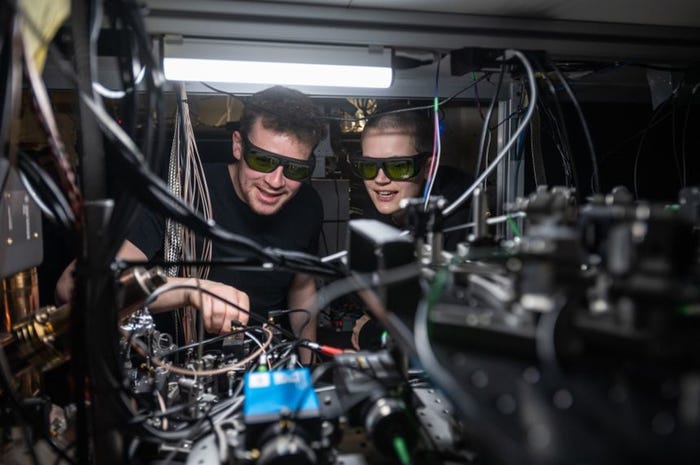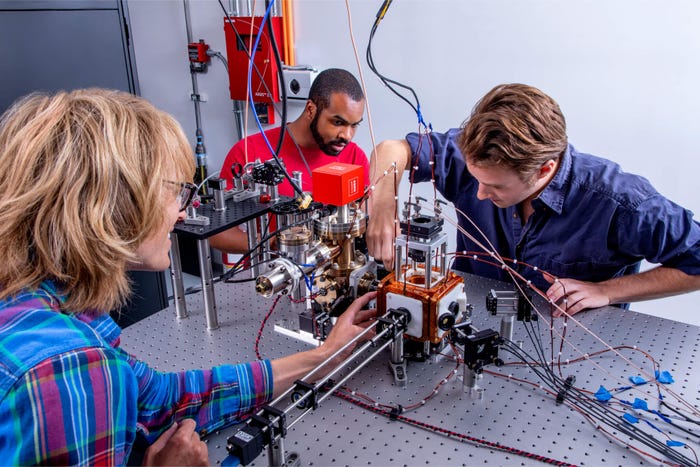
Connects decision-makers and solutions creators to what's next in quantum computing
New Chip Design Paves Way to Practical Quantum ComputingNew Chip Design Paves Way to Practical Quantum Computing
Oxford Ionics’ trapped ion technology eliminates the need for lasers and can be mass-produced

Oxford Ionics has demonstrated what it claims is the highest-performing quantum computing chip in the world that can be produced at scale in a standard semiconductor fabrication plant.
Quantum computers need more qubits and a way of controlling the qubits to scale until they are powerful enough to be useful. Most approaches see a drop-off in qubit control performance as the devices get more powerful.
Oxford Ionics uses a trapped ion architecture, which has shown promising performance results performance but uses lasers to control the qubits, making it difficult to scale.
The company has patented a new laser-free approach it calls the Electronic Qubit Control System. It incorporates everything needed to control qubits into a silicon chip that can be mass-produced using standard semiconductor manufacturing facilities and processes.
Oxford Ionics said the new design provides twice the performance of previous attempts and means that powerful quantum computers can be built with far fewer qubits. This could lead to the development of commercial applications without needing the complex and costly error correction techniques other architectures require.
Oxford Ionics co-founder and CEO Chris Balance told Enter Quantum: “Since our very early days, our philosophy has always been that high-performance qubits were the key to bringing commercially valuable quantum computers to market. In breaking the previously held records for two-qubit and single-qubit gate fidelity, we’ve made a fundamental leap toward achieving that goal.
“Now that we’ve demonstrated the highest-performing quantum chip in the world, we can direct our focus to scaling. With the ability to produce our quantum chips in a standard semiconductor fab, we think the era of useful quantum computing could arrive sooner than expected.”
Oxford Ionics now plans to build a scalable 256-qubit chip that can be manufactured on existing semiconductor production lines.
Earlier this year, Oxford Ionics was one of the companies to benefit from a $57 million U.K. government investment boost for the quantum sector.
The company previously raised $36.5 million in a Series A round of funding to help resolve scalability issues relating to its trapped-ion approach to quantum computing.
About the Author
You May Also Like






